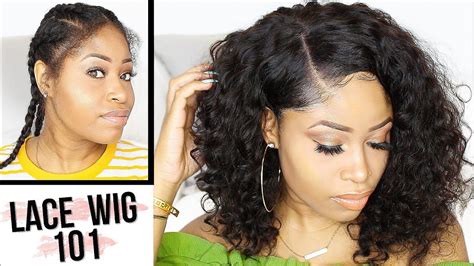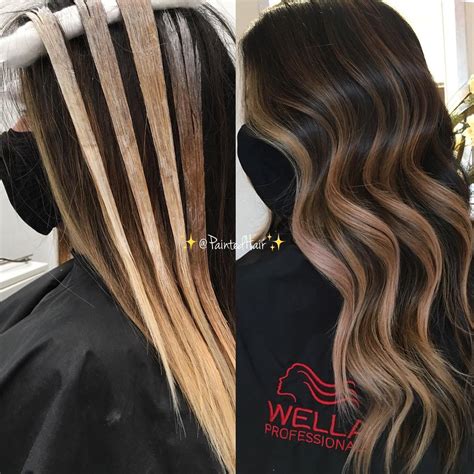Deciding between full and partial highlights can be a daunting task, especially if you’re a hair dye newbie. To help you make an informed choice, this comprehensive guide will explore the details of each technique, including their benefits, drawbacks, and maintenance requirements.

Types of Highlights
1. Full Highlights:
Involves bleaching or dyeing all or most of your hair to create an even distribution of color. This technique creates a more dramatic and noticeable effect.
2. Partial Highlights:
Focuses on lightening only certain sections of your hair, such as the crown, face-framing pieces, or ends. Partial highlights provide a more subtle and natural-looking result.
Benefits of Full Highlights
- Bold and Statement-Making: Creates a striking and eye-catching look.
- Covers Gray Effectively: Hides stubborn gray hairs completely.
- Increases Hair Volume: Bleaching can create the illusion of thicker, fuller hair.
Drawbacks of Full Highlights
- High Maintenance: Requires frequent touch-ups (every 6-8 weeks) to maintain color vibrancy.
- Damage to Hair: Bleaching can weaken hair and make it more susceptible to breakage.
- Expensive: Can be more costly than partial highlights due to the larger amount of time and product required.
Benefits of Partial Highlights
- Natural-Looking Results: Provides a subtle and blended effect that complements your natural hair color.
- Less Damaging: Less bleaching is involved, reducing the risk of hair damage.
- Low Maintenance: Touch-ups are less frequent (every 12-16 weeks).
Drawbacks of Partial Highlights
- Less Dramatic: Can be less noticeable than full highlights.
- May Not Cover All Gray Hairs: Can leave some stubborn gray strands visible.
- Can Be Time-Consuming: Applying partial highlights can take longer than full highlights.
Which Technique is Right for You?
The choice between full and partial highlights depends on your hair goals and lifestyle.
- If you want a bold and statement-making look, go for full highlights.
- If you prefer a more natural and subtle effect, opt for partial highlights.
- If you have a busy schedule and low maintenance is a priority, partial highlights are a better choice.
Common Mistakes to Avoid
- Bleaching Too Often: Over-bleaching can severely damage hair.
- Using Incorrect Products: Choose bleach and hair color that is formulated for your hair type.
- DIY Home Dyeing: It’s recommended to visit a professional hairstylist for best results.
- Neglecting Haircare: Maintain hair health with regular deep conditioning and heat protection.
Comparison Table: Full Highlights vs. Partial Highlights
| Feature | Full Highlights | Partial Highlights |
|---|---|---|
| Color Distribution | All or most of hair | Only certain sections |
| Effect | Bold and dramatic | Subtle and natural |
| Gray Coverage | Complete | May not cover all |
| Maintenance | Frequent touch-ups | Less frequent touch-ups |
| Damage to Hair | More damaging | Less damaging |
| Cost | Higher | Lower |
| Application Time | Shorter | Longer |
Table of Benefits and Drawbacks
Full Highlights
Benefits:
– Bold and striking
– Covers gray hair effectively
– Increases hair volume
Drawbacks:
– High maintenance
– Can damage hair
– Expensive
Partial Highlights
Benefits:
– Natural-looking results
– Less damaging
– Low maintenance
Drawbacks:
– Less dramatic
– May not cover all gray hair
– Can be time-consuming
Table of Maintenance Tips
| Technique | Frequency of Touch-Ups | Care Tips |
|---|---|---|
| Full Highlights | Every 6-8 weeks | Regular deep conditioning, heat protection |
| Partial Highlights | Every 12-16 weeks | Touch-up only the highlighted sections |
Table of Applications for Full and Partial Highlights
| Technique | Suitable for | Ideal for |
|---|---|---|
| Full Highlights | Bold statements, dramatic changes | Covering gray hair, creating contrast |
| Partial Highlights | Subtle enhancements, natural-looking effects | Adding dimension, contouring face |
Conclusion
Full and partial highlights offer unique benefits and drawbacks, catering to different hair goals and lifestyles. By understanding the details of each technique, you can make an informed decision and achieve the desired results. Remember to prioritize hair health, follow proper application techniques, and seek professional guidance when necessary.
